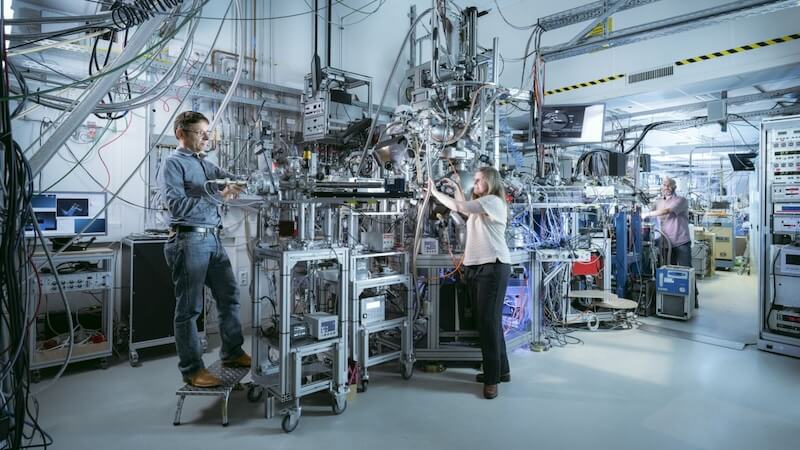
German researchers have developed a new method to examine batteries at the atomic level. The goal: to develop even more powerful batteries.
Without batteries, today's world would no longer function. Energy storage devices, mostly in the form of lithium-ion batteries, are now found in billions of devices – whether in smartphones, electric vehicles or storage systems. But every battery also has its physical limits. The only question is where these lie.
Researchers at the Karlsruhe Institute of Technology (KIT) also asked themselves this question. They worked together with the University of Münster and developed a new measuring instrument called NAPXAS. This allows batteries to be observed at the molecular level during the charging process.
Batteries can be analyzed using synchrotron radiation
NAPXAS is located at the Karlsruhe Research Accelerator (KARA) and provides previously impossible insights into the life cycle of batteries. This makes it possible to investigate energy conversion and aging processes in energy storage systems under almost normal chemical conditions.
The solution lies in synchrotron radiation. This is a form of soft X-rays. The research team used this to gain insights into the internal structure and functionality of the battery materials. In the long term, the new method could enable more efficient energy storage.
Analysis at the atomic level could lead to super battery
The project aims to understand and overcome the capacity limits of lithium-ion batteries in order to develop new and more efficient super batteries. Initially, the project participants want to use NAPXAS in the LimLi research project. The abbreviation stands for: “Overcoming Limitations in Li-ion Batteries” and is led by the University of Münster.
The aim of the project is to analyze the energy storage capacity of lithium-ion batteries at the atomic level. In the long term, the researchers would like to make the new measuring instrument available for research internationally. The project is funded by the Federal Ministry of Education and Research.
Also interesting:
Source: https://www.basicthinking.de/blog/2024/05/26/batterien-analysieren/


